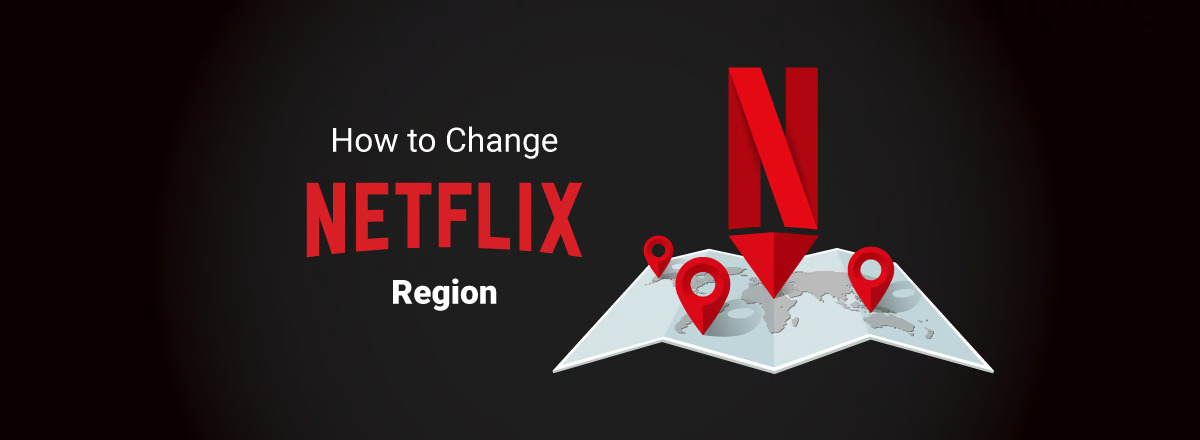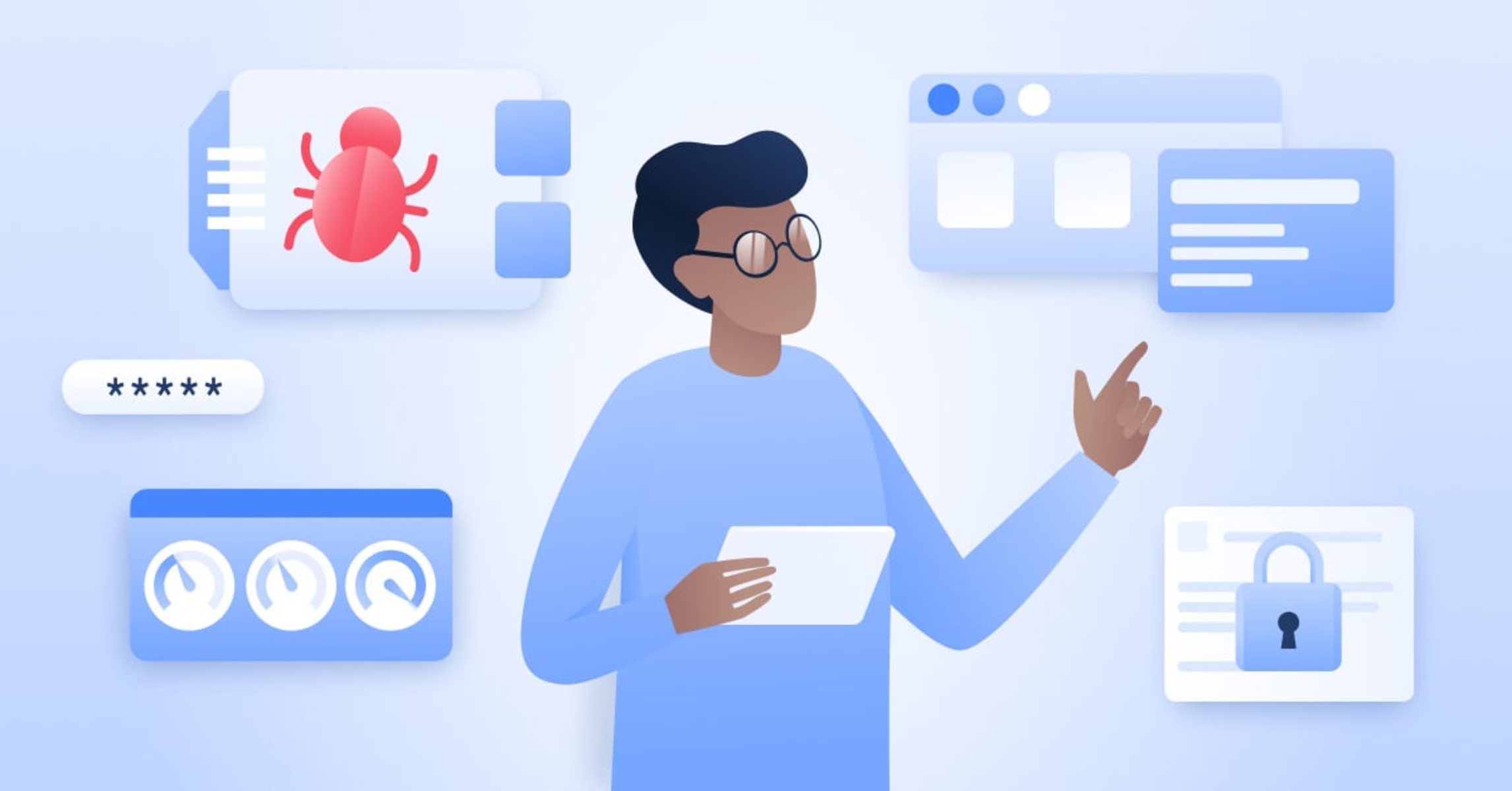Introduction
In today’s digital age, the internet has opened up a world of possibilities, allowing us to connect and access information with just a few clicks. However, not all online content is readily available to everyone, as certain websites and streaming platforms restrict access based on geographical location. This is where a Virtual Private Network (VPN) comes into play.
A VPN is a powerful tool that can help you bypass these restrictions and access content from another country. By encrypting your internet connection and routing it through a server located in a different country, a VPN allows you to browse the web as if you were physically present in that location. This means you can access websites, streaming services, and other online content that may be blocked or limited in your current country.
There are several reasons why someone might want to use a VPN from another country. Perhaps you’re an expatriate who wants to access your favorite shows and websites from back home. Or maybe you’re a digital nomad who needs to securely connect to your work network while traveling. Whatever your reasons may be, using a VPN can provide you with a myriad of benefits.
In this article, we will explore in detail the benefits of using a VPN from another country and provide you with a step-by-step guide on how to set up and use a VPN. Additionally, we will discuss alternative methods for accessing content from another country without a VPN. By the end of this article, you’ll have a clear understanding of how to use a VPN to unlock the internet and enjoy a borderless online experience.
What is a VPN?
A VPN, short for Virtual Private Network, is a technology that creates a secure and encrypted connection between your device and a remote server. It acts as a tunnel that protects your data while allowing you to browse the internet and access online resources anonymously. When you connect to a VPN, your internet traffic is routed through the VPN server, which masks your IP address and encrypts your data, making it secure from prying eyes.
One of the primary functions of a VPN is to enhance your privacy and security online. By encrypting your internet connection, a VPN prevents hackers, government agencies, and ISPs from intercepting and monitoring your online activities. This is especially crucial when using public Wi-Fi networks, as they are often insecure and vulnerable to attacks. With a VPN, you can browse the internet with peace of mind, knowing that your data is protected.
Aside from privacy and security, a VPN also allows you to bypass geo-restrictions and access content that is otherwise unavailable in your location. When you connect to a VPN server in another country, websites and services will perceive your location as the country where the server is located. This means you can access region-locked content, such as streaming services, news websites, or social media platforms that might be limited in your country.
Furthermore, a VPN can be a valuable tool for remote workers or individuals who frequently travel. It allows you to securely connect to your company’s network from anywhere in the world, ensuring that your sensitive data and communications remain protected. Additionally, a VPN can help you bypass internet censorship and access blocked websites or services in countries with strict online restrictions.
In summary, a VPN is a versatile tool that provides privacy, security, and the ability to bypass geo-restrictions. Whether you want to protect your online activities, access content from another country, or connect to a remote network, a VPN can provide you with the necessary tools to do so. In the following sections, we will delve deeper into the benefits of using a VPN from another country and guide you on how to set it up and use it effectively.
Benefits of using a VPN from another country
Using a VPN from another country offers a multitude of benefits that can greatly enhance your online experience. Let’s explore some of the main advantages below:
- Access to region-restricted content: One of the primary benefits of using a VPN from another country is the ability to access region-restricted content. By connecting to a server in a different country, you can bypass the geo-blocking restrictions imposed by websites and streaming services. This means you can enjoy your favorite shows, movies, sports events, and other content that may be limited or unavailable in your current location.
- Enhanced online privacy and security: When you connect to a VPN, all of your internet traffic is encrypted and routed through a secure server. This provides an additional layer of protection and anonymity, shielding your sensitive data from potential hackers, government surveillance, and ISPs. It is especially crucial when you’re using public Wi-Fi networks, as a VPN ensures that your online activities and personal information are kept safe.
- Bypassing censorship and internet restrictions: Some countries have strict internet censorship policies that block access to certain websites, social media platforms, or messaging apps. By using a VPN from another country, you can bypass these restrictions and regain full access to the internet. It allows you to browse the web freely and securely, without worrying about limitations imposed by your local government or internet service provider.
- Protection against online surveillance: In an era where online surveillance has become rampant, using a VPN from another country can help protect your digital footprint. It prevents advertisers, data brokers, and other third parties from tracking and profiling your online activities. With a VPN, you regain control over your privacy and maintain anonymity while browsing the web.
- Safe and secure remote connections: If you work remotely or need to access your company’s network from a different location, using a VPN from another country provides a secure way to connect. It encrypts your connection, ensuring that your sensitive data and communications remain protected from potential cyber threats. Whether you’re working on sensitive projects or accessing confidential documents, a VPN offers peace of mind and safeguards your information.
By using a VPN from another country, you can enjoy these benefits and have a seamless online experience. In the next section, we will guide you through the process of choosing a VPN service that suits your needs and preferences.
Choosing a VPN service
When it comes to choosing a VPN service, there are several factors to consider to ensure you select the right one for your needs. Here are some key points to keep in mind when evaluating different VPN providers:
- Security and privacy: Look for a VPN service that prioritizes strong encryption protocols, such as AES-256, and offers features like kill switch and DNS leak protection. Additionally, check if the VPN provider has a strict no-logs policy, meaning they don’t keep records of your online activities. This ensures that your data and privacy are protected.
- Server network: Consider the number and location of the VPN provider’s servers. A larger server network allows for better connection speeds and greater access to different regions. If your main goal is to access content from a specific country, make sure the VPN provider has servers in that location.
- Connection speed: Connection speed is essential, especially if you plan to stream content or engage in activities that require a fast and stable internet connection. Look for VPN providers that offer unlimited bandwidth and have a reputation for providing reliable and high-speed connections.
- Ease of use and compatibility: A user-friendly VPN client with intuitive features and a clean interface can make your VPN experience much smoother. Ensure that the VPN service you choose has apps available for your preferred devices (such as Windows, Mac, iOS, and Android) and supports simultaneous connections on multiple devices.
- Customer support: In case you run into any issues or have questions regarding the VPN service, reliable customer support is crucial. Look for VPN providers that offer responsive support channels, such as live chat, email, or phone support, to assist you whenever you need help.
- Pricing: While pricing shouldn’t be the sole determining factor, it’s important to consider your budget when selecting a VPN service. Compare different subscription plans and choose one that offers the best value for your money. Keep in mind that some VPN providers may offer money-back guarantees or free trial periods, allowing you to test their service before committing to a long-term plan.
By considering these factors, you can find a VPN service that aligns with your requirements and provides the features and functionality you need. In the next section, we will guide you through the step-by-step process of setting up and using a VPN from another country.
Step-by-step guide to using a VPN from another country
Setting up and using a VPN from another country is a straightforward process. Follow these steps to get started:
- Choose a VPN provider: Begin by selecting a reputable VPN provider that meets your specific needs and requirements. Consider factors such as security, server network, connection speed, and compatibility with your devices.
- Sign up and download the VPN app: Visit the VPN provider’s website and sign up for an account. After successfully signing up, download the VPN app compatible with your device’s operating system (Windows, Mac, iOS, Android, etc.).
- Install the VPN app: Once the app is downloaded, follow the installation instructions to set it up on your device. Launch the VPN client after installation.
- Login to your VPN account: Use the credentials (username and password) provided during the signup process to log in to your VPN account through the app.
- Select a server location: Most VPN apps display a list of server locations around the world. Choose a server in the country you wish to connect to. For example, if you want to access content available only in the United States, select a VPN server located in the US.
- Connect to the VPN: Once you have selected the desired server location, click on the “Connect” button within the VPN app to establish a connection. The app will now connect your device to the VPN server.
- Verify the VPN connection: After the connection is established, verify that your device is now connected to the VPN by checking the VPN app or using an online IP address checking tool. Your IP address should reflect the country of the selected VPN server.
- Start browsing: You are now connected to the VPN from another country. Open your preferred web browser or any other online application, and you will be able to access content and services restricted to the country of the VPN server.
Remember to keep the VPN app running in the background if you want to maintain a secure and unrestricted connection. You can also select different server locations within the VPN app to access content from various countries.
Using a VPN from another country allows you to unlock a wide range of online content and browse the web as if you were physically present in that location. In the next section, we will discuss how to test the VPN connection and ensure that it is working correctly.
Setting up the VPN on your device
Before you can start using a VPN from another country, you need to set it up on your device. Here’s a step-by-step guide to help you get started:
- Choose a VPN provider: Select a reputable VPN provider and sign up for an account. If the provider offers dedicated apps for different operating systems, download the app for your device’s operating system (Windows, Mac, iOS, Android, etc.).
- Install the VPN app: Install the VPN app on your device by following the installation instructions provided by the VPN provider. Make sure to download the correct version for your operating system.
- Launch the VPN app: Once the installation is complete, launch the VPN app on your device.
- Login to your VPN account: Use the login credentials provided during the signup process to log in to your VPN account within the app.
- Customize VPN settings (optional): Some VPN apps offer customizable settings that allow you to tailor your VPN experience. You can adjust settings such as protocol selection, encryption strength, and automatic connection options based on your preferences.
- Select a server location: Within the VPN app, you will usually find a list of available server locations. Choose a server in the country you want to appear as if you are browsing from.
- Connect to the VPN: Click on the “Connect” or “Start” button within the VPN app to initiate the connection. The app will establish a secure connection between your device and the VPN server.
- Verify the VPN connection: Once the connection is established, verify that your device is now connected to the VPN. You can do this by checking the VPN app’s status or using an online IP address checking tool. Your IP address should reflect the country of the VPN server you selected.
Once the VPN is set up on your device and the connection is established, all of your internet traffic will be encrypted and routed through the VPN server. This ensures that your online activities are secure and appear to be coming from the location of the VPN server, allowing you to access content from another country.
Keep in mind that some VPN providers offer additional features, such as split tunneling or ad-blocking, which can further enhance your VPN experience. Explore the settings and features offered by your VPN provider to make the most out of your VPN connection. In the next section, we will discuss selecting a server location and its significance when using a VPN from another country.
Selecting a server location
When using a VPN from another country, one of the key decisions you’ll need to make is selecting the server location to connect to. The server location you choose plays a crucial role in determining your online experience and the content you can access. Here are some factors to consider when selecting a server location:
- Access to geo-restricted content: One of the primary reasons for using a VPN from another country is to access content that is restricted or blocked in your current location. When selecting a server location, choose a country where the content you want to access is available. For example, if you want to stream shows from US-based platforms, connect to a VPN server located in the United States.
- Server proximity: The physical distance between your device and the VPN server can impact connection speed. In general, connecting to a server closer to your actual location will provide faster connection speeds. If speed is a priority, consider selecting a server location that is geographically close to your physical location.
- Server availability: Check if the VPN provider you choose has ample server options in the locations you are interested in. Having multiple servers within a country can provide better flexibility and reliability in terms of connection speed and server availability. It also allows you to switch between servers if one becomes overcrowded or experiences issues.
- Specific country requirements: If you have specific requirements that depend on a particular country, such as accessing region-specific banking services or websites, make sure the VPN provider has servers in that country. This ensures that you can access those services without any issues.
- Legal and privacy considerations: Be aware of the legal and privacy regulations in the country where the VPN server is located. Some countries have stricter data retention laws or may require VPN providers to comply with government surveillance programs. If privacy is a concern, research the VPN provider’s stance on user privacy and their transparency regarding data logging and retention policies.
When selecting a server location, it’s important to strike a balance between accessing the content you desire and achieving optimal connection speed and performance. Take the time to explore the available server options provided by your chosen VPN provider and select the server location that best aligns with your needs.
In the next section, we will discuss the process of connecting to the VPN and ensuring that your connection is properly established.
Connecting to the VPN
Once you have set up your VPN and selected the desired server location, it’s time to connect to the VPN and establish a secure connection. The process may vary slightly depending on the VPN provider and the device you are using, but the general steps are as follows:
- Launch the VPN app: Open the VPN app that you installed on your device.
- Login to your VPN account: Use the credentials (username and password) provided by your VPN provider to log into your account within the app.
- Select the server location: Within the app, locate the option to select a server location. Choose the server location that you previously decided upon based on your needs and preferences.
- Initiate the connection: Click on the “Connect” or “Start” button within the VPN app to initiate the connection process. The app will establish a secure connection between your device and the VPN server in the selected location.
- Verify the connection: After the connection is established, verify that your device is now connected to the VPN. This can typically be confirmed within the VPN app itself or by using an online IP address checking tool. Your IP address should reflect the country of the server location you selected.
- Test the connection: To ensure that the VPN is functioning correctly, visit a geo-restricted website or streaming platform to see if you can access content that is typically restricted in your current location. If you can access the content while connected to the VPN, it indicates that your connection is successfully routed through the selected server location.
It’s important to note that some VPN apps may have additional features or settings you can customize to further enhance your VPN experience. Explore the app’s options and make any necessary adjustments based on your preferences.
Remember to keep the VPN app running in the background or set it to automatically connect whenever you access the internet, if supported. By doing so, you can ensure that your internet traffic remains encrypted and secure, and that you continue to enjoy the benefits of using a VPN from another country.
In the next section, we will discuss testing the VPN connection and ensuring that it performs as expected.
Testing the VPN connection
Once you have connected to a VPN server from another country, it’s essential to test the VPN connection to ensure that it is working properly. By running a few tests, you can verify that your online activities are secured and that you can access location-restricted content. Here are some methods to test your VPN connection:
- IP address check: Use an online IP address checking tool or a simple search engine query to check your IP address. The displayed IP address should match the location of the VPN server you connected to. For example, if you connected to a server in the United States, the IP address displayed should indicate that you are browsing from the US.
- DNS leak test: Perform a DNS leak test to ensure that your internet connection is not leaking your DNS information. Several websites offer DNS leak tests that can identify if your DNS queries are being resolved by your ISP instead of the VPN server. A successful test result indicates that your DNS queries are properly routed through the VPN server.
- Geo-restricted content access: Visit websites or streaming platforms that are typically inaccessible or restricted in your current location. If you can access region-locked content while connected to the VPN, it indicates that you have successfully bypassed location restrictions and are browsing as if you were in the country of the VPN server.
- Data speed and performance: Test the connection speed and performance of your internet connection while connected to the VPN. Use online speed testing tools to measure the download and upload speeds. Compare the results with and without the VPN connection to assess any potential impact on your internet speed. Ideally, there should be minimal decrease in speed, but some variation is expected due to the encryption and routing processes.
By performing these tests, you can ensure that your VPN connection is secure, your IP address is correctly masked, your DNS queries are not leaking, and you can access content that is typically restricted in your location. If you encounter any issues during the testing process, check your VPN app settings, try connecting to a different VPN server location, or reach out to your VPN provider’s customer support for assistance.
In the next section, we will explore alternative methods for accessing content from another country without using a VPN.
Alternative methods for accessing content from another country without a VPN
While using a VPN is a popular and effective method for accessing content from another country, there are alternative methods you can explore if you prefer not to use a VPN. These methods may provide varying levels of success depending on the content you want to access and the restrictions in place. Here are some alternative methods to consider:
- Proxy servers: Proxy servers act as intermediaries between your device and the websites you want to access. They can mask your IP address and make it appear as if you are browsing from a different location. However, proxy servers may not provide the same level of security and encryption as a VPN, and some may have limitations in terms of speed and reliability.
- Smart DNS: Smart DNS services can help you bypass geo-restrictions without encrypting your internet connection. These services work by rerouting your DNS queries through servers located in different countries, allowing you to access location-restricted content. However, smart DNS services may not provide the same level of privacy as a VPN, and they may not work for all types of content or devices.
- Content streaming services: Some content streaming services offer access to a wider range of content depending on the region in which you are located. If you want to access specific shows or movies, consider subscribing to streaming platforms that offer content libraries specific to certain countries. Keep in mind that this method may require separate subscriptions or may not work for all types of content.
- Virtual Machines: Using virtual machine software, you can create a virtual operating system on your device and run it from another country. By doing so, you can access location-restricted content as if you were physically located in that country. However, setting up and maintaining a virtual machine requires technical knowledge and can be more complex than using a VPN.
- Web-based proxies: Web-based proxies are online services that allow you to browse the web through their servers. These services can help you access content from another country by routing your browsing traffic through their servers. However, web-based proxies may have limitations in terms of speed, usability, and security.
It’s important to note that these alternative methods may have limitations and may not provide the same level of security, privacy, and reliability as using a VPN. VPNs often offer a more robust and comprehensive solution for bypassing geo-restrictions and maintaining online security and anonymity. Therefore, it’s recommended to thoroughly research and assess the risks and benefits of each alternative method before utilizing them.
In the next section, we will wrap up the article and provide a summary of the key points discussed.
Conclusion
Using a VPN from another country can unlock a world of possibilities, allowing you to access geo-restricted content, enhance your online privacy and security, and bypass internet censorship. By encrypting your internet connection and routing it through a server located in a different country, a VPN provides you with a seamless and secure online experience.
In this article, we discussed the benefits of using a VPN from another country, including accessing region-restricted content, enhancing online privacy and security, bypassing censorship, and ensuring secure remote connections. We also provided a step-by-step guide on how to set up and use a VPN, as well as alternative methods for accessing content without a VPN.
When selecting a VPN service, consider factors such as security features, server network, connection speed, compatibility, and customer support. These aspects will ensure that you choose a VPN provider that meets your specific needs and provides a reliable and secure connection.
Whether you choose to use a VPN or explore alternative methods, remember to prioritize your privacy and security while browsing the web. Take advantage of the tools and technologies available to you to unlock a truly borderless online experience.
By following the guidelines and recommendations provided in this article, you can take control of your online presence and enjoy the freedom to access content from around the world.

























